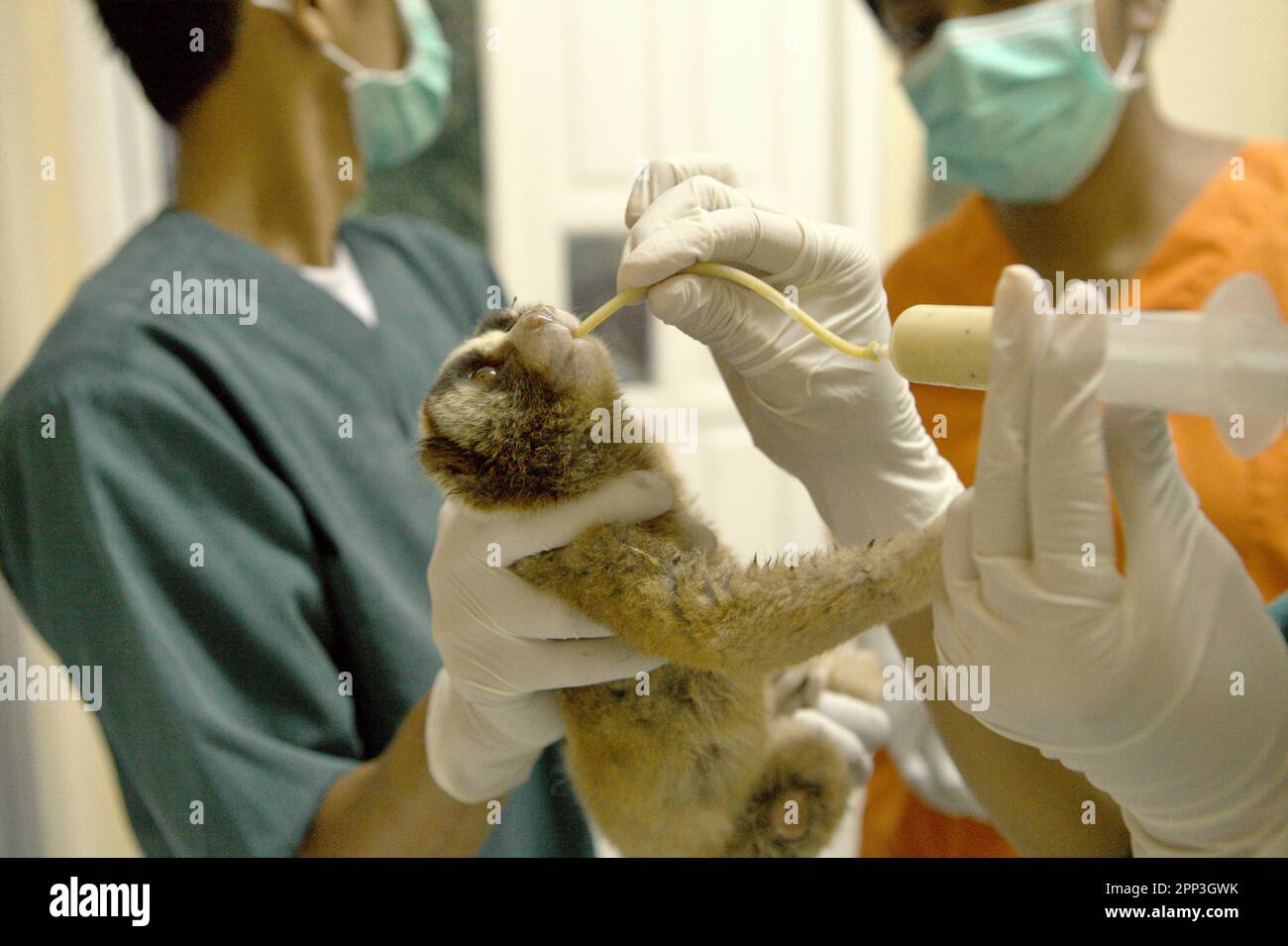A team of veterinarians led by Sharmini Julita Paramasivam is giving a medical treatment to a slow loris that were rescued from wildlife trade, at a veterinary facility operated by International Animal Rescue (IAR) in Ciapus, Bogor, West Java, Indonesia. Despite its protection, slow loris has been suffering from wildlife trade. The nocturnal primate species is treated as pet while not having characteristics to survive in anthropogenic settings. Moreover, the species is quite popular on social media.

Image details
Contributor:
Pacific Imagica / Alamy Stock PhotoImage ID:
2PP3GWKFile size:
60.5 MB (2.8 MB Compressed download)Releases:
Model - no | Property - noDo I need a release?Dimensions:
5634 x 3752 px | 47.7 x 31.8 cm | 18.8 x 12.5 inches | 300dpiDate taken:
18 August 2011Location:
Bogor, West Java, IndonesiaMore information:
This image could have imperfections as it’s either historical or reportage.
A team of veterinarians led by Sharmini Julita Paramasivam is giving a medical treatment to a slow loris that were rescued from wildlife trade, at a veterinary facility operated by International Animal Rescue (IAR) in Ciapus, Bogor, West Java, Indonesia._Despite its protection, slow loris has been suffering from wildlife trade. The nocturnal primate species is treated as pet while not having characteristics to survive in anthropogenic settings. Moreover, the species is quite popular on social media._Based on examination of 100 videos of slow lorises uploaded by users of three popular social media platforms (YouTube, TikTok, and Giphy), a team of researchers led by Luke F. Quarles (Nocturnal Primate Research Group, Oxford Brookes University, Oxford, United Kingdom) have found that the used slow lorises were generally presented in situations where they were removed from its proper ecological context._"Our findings indicate that there is a need for an examination of the animal-based content present on social media platforms. Social media has great potential to connect users with wildlife in ways that promote appropriate concern and understanding, " they wrote in a research article published in March 2023 on Frontiers in Conservation Science.